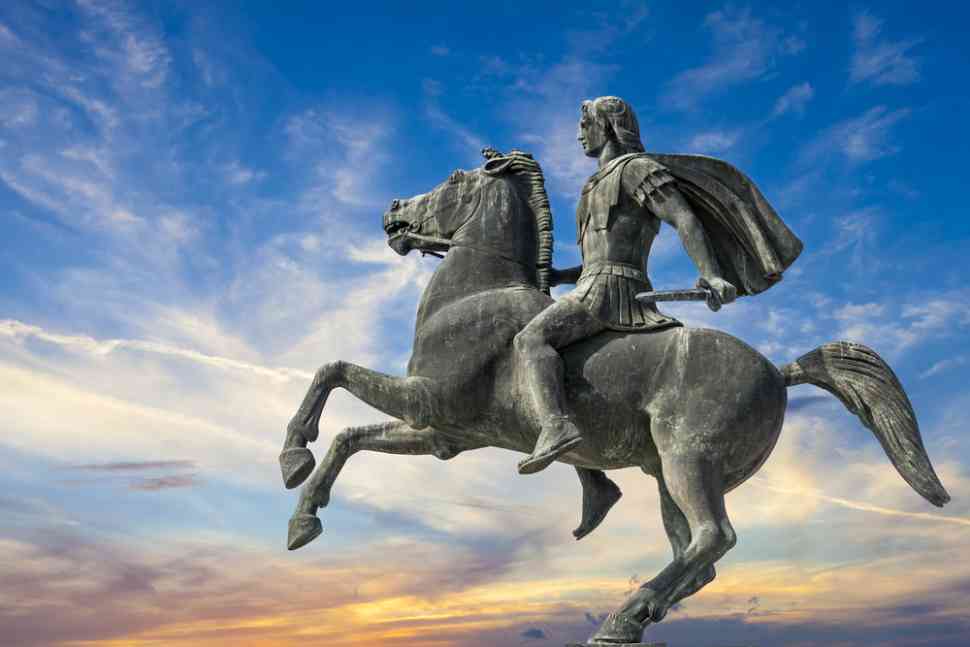4 Things You Should Know About Alexander The Great

Alexander III or Alexander The Great, as he is known today, was the son of Philip II and King of Macedonia. What made Alexander The Great famous overtime was the conquest of almost all the known world and the expansion of Greek culture in it. Despite his short reign, he managed to acquire fame even after his death and be known worldwide. Born in 356 BC, he became the general Emperor of Greece just like his father Philip. The purpose was to campaign against the Persian Empire and eliminate the Persian danger.
In this article, we will see 4 things about Alexander the great that we ought to know:
- Name of cities after Alexander The Great
In his course of conquest, Alexander founded many cities giving to them his name. The first city he would establish was located in Egypt. As soon as he captured it, the Egyptians proclaimed him Pharaoh. The plans for the city were made by Alexander The Great himself. The plans included the city walls, the main market, as well as a temple dedicated to Isis, an Egyptian goddess. The city, like many that he created, was called Alexandria. Subsequently, he founded other cities about which there is not much historical evidence. It is said that in India he had founded Bucephalus Alexandria in honor of his horse called Bucephalus - Dissolution of the Persian Empire
The goal of Alexander The Great was the conquest of Persia. It was an unfulfilled dream that he inherited from his father, Philip. Alexander within eleven years succeeded, not only in eliminating the Persian danger but also in completely capturing the Persian empire reaching as far as India. - Interculturalism from Alexander The Great
One of the great general’s thoughts was how he would manage to command the vast empire he had created. He wished to appear not as the foreign conqueror, but as the new king. Its purpose was to unite the Greeks with the Persians. To accomplish this, he preserved many of the manners and customs of the Persians, and also the institution of a satrapy. A satrapy was a region of the Empire that was administered by the satrap but remained loyal to the Persian king. In the places where there was a satrap, Alexander the Great placed either Greeks or Persians. Finally, he sought to enforce the mixed marriages of Greeks and Persians. In fact, Alexander himself married Roxanne, the daughter of a Persian nobleman. His policy would be characterized as anti-racist as it promoted the equality of all people. - Death of Alexander The Great
The end of Emperor Alexander was not long in coming. It was early June 323 BC. and he was planning the circumnavigation of Arabia when he was heavily ill. Despite the conspiracies surrounding his death, the cause that has prevailed is typhoid fever. It is also rumored that malaria killed Alexander The Great. His febrile condition lasted 10 days raising suspicions in his military about whether he lived or he had died. His generals were compelled to allow all his soldiers to bid him farewell one by one. It is estimated that Alexander the Great left his last breath on 10 June 323 BC. at the age of 32. Alexander had not indicated a successor, and consequently, the battle for the succession began at once. The vast empire was dissolved and shared by his generals. The death of Alexander marked the end of the Hellenistic period of antiquity.
To conclude, Alexander The Great was a personality who contributed greatly to the spread of Greek culture in the world. He eliminated the Persian danger and succeeded in widening the boundaries of the kingdom. He was one of the persons whose influence has made him known to this day, more than 2000 years after his death.
Bring the best of the CEOWORLD magazine's global journalism to audiences in the United States and around the world. - Add CEOWORLD magazine to your Google News feed.
Follow CEOWORLD magazine headlines on: Google News, LinkedIn, Twitter, and Facebook.
Copyright 2025 The CEOWORLD magazine. All rights reserved. This material (and any extract from it) must not be copied, redistributed or placed on any website, without CEOWORLD magazine' prior written consent. For media queries, please contact: info@ceoworld.biz








